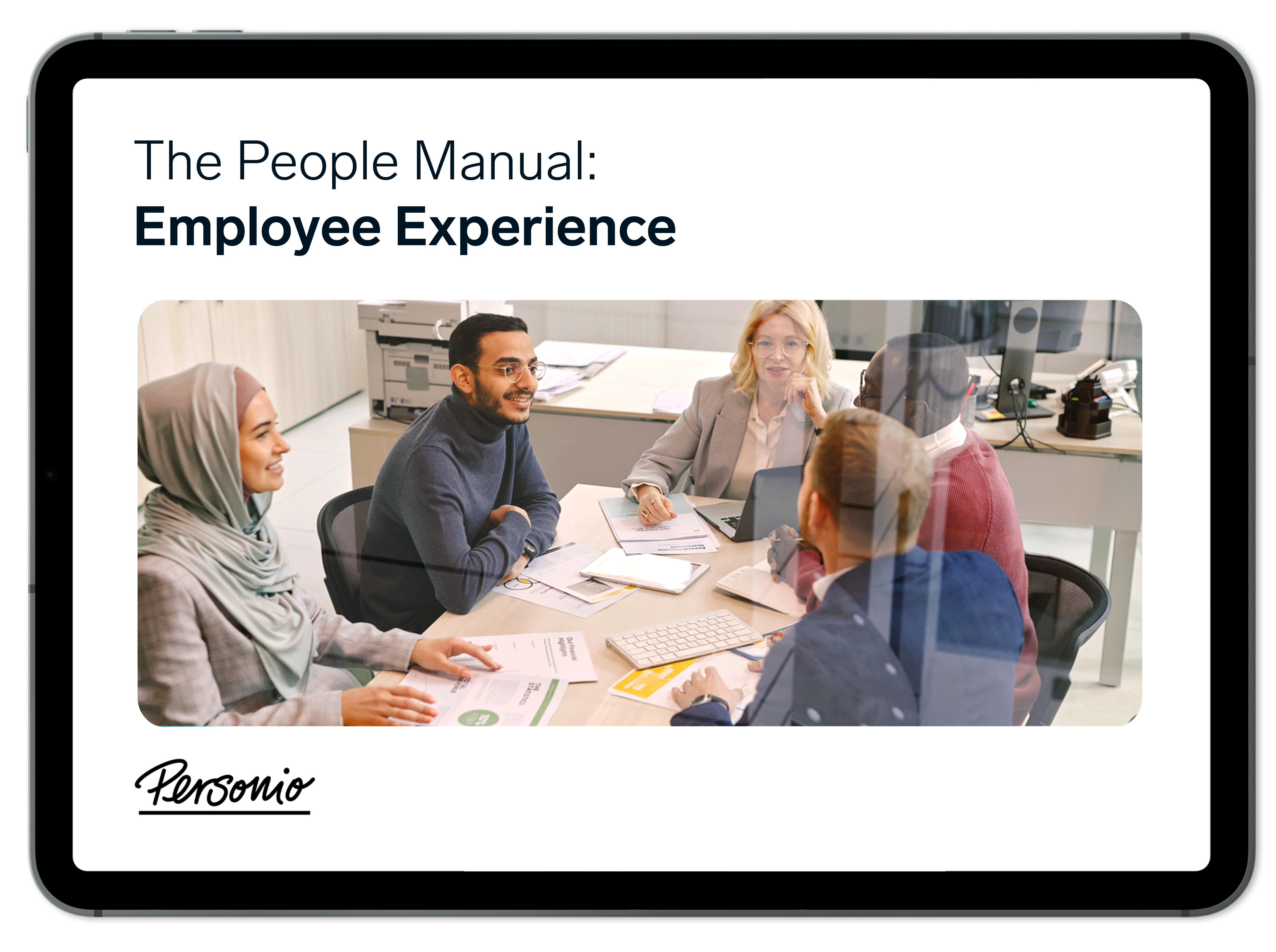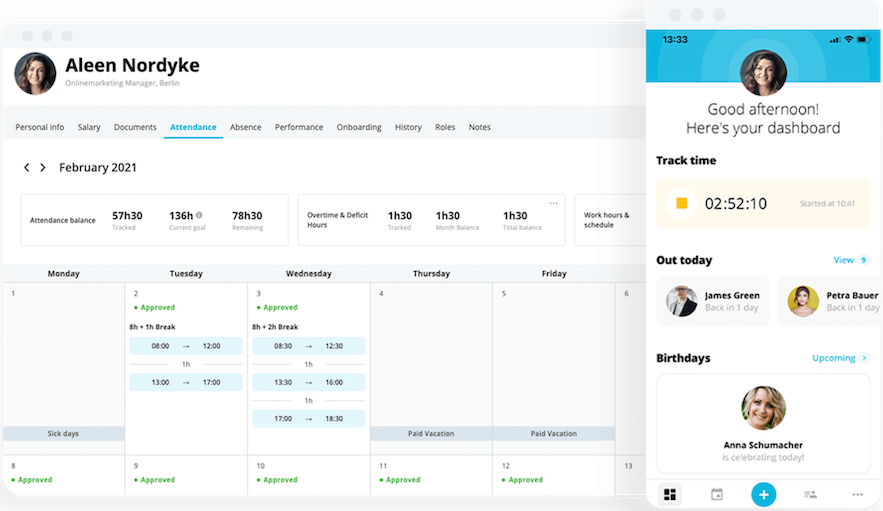Should You Be Conducting Stay Interviews?

What is a stay interview? When it comes to top talent, it matters just as much how you attract and how you retain your high performers. Stay interviews are a means of getting attuned to the needs of your workers and helping you invest in their happiness, wellbeing and productivity.
Key Facts
Stay interviews are alternatives to exit interviews, designed to identify problems before they impact employee retention.
Typically, only long-standing and high-performing employees are asked to attend these interviews because the company wants to determine why they stay.
Stay interviews vary from employee to employee because each one has a different reason for remaining with the organisation.
What Is a Stay Interview?
A stay interview is a type of interview used by organisations to retain high-performing employees. Employers use it as an opportunity to sit down with current employees and speak to them about what they are satisfied with and where things could be improved.
By proactively engaging with top performers, the purpose of a stay interview is to:
Boost overall retention
Decrease regretted churn
Establish a more positive workplace culture
How Do You Conduct a Stay Interview?
The following best practices can help you craft the best possible stay interview process…
1. Start By Setting Expectations
Inform various members of your team that you’ll conduct interviews to identify ways to improve the workplace and encourage employees to stay. Understanding its purpose will mitigate stress while giving them time to consider their answers.
2. Listen and Take Notes
Actively engage with what your employees tell you. Bring a journal and take notes. This signals that you take their replies seriously and gives you something to reference later when analysing the results.
3. Separate It From Performance Reviews
Don’t discuss the employee’s performance during a stay interview. Bringing up how they’re performing can steer the meeting in a different direction and may cause employees to avoid answering stay interview questions truthfully. This skews the results and can affect the purpose of the stay interview.
4. Meet in a Comfortable Location
Hold the interview in a place that puts the employee at ease. Their comfort can help encourage more thoughtful and thorough answers to your questions. You may want them to pick the location of the meeting, hold it virtually or explore other alternatives that are best for the employee being interviewed.
5. Allow for Ample Time
The length of a stay interview can vary depending on the preferences of the employee, and it’s important that you leave enough time, so you don’t rush through it. These meetings can last between 20 minutes to an hour or even longer. It’s important to take as much time as you need to understand the employee’s viewpoint.
6. Ask Open-Ended Questions
Open-ended questions encourage the most comprehensive answers. Yes-no questions offer no detail, making it more difficult to pinpoint the exact issue.
7. Be Selective
You should only conduct interviews with members of the workforce who’ve been at the company for many years and perform consistently well. Those employees will have the most insight into what the company is doing right and how it needs to improve. From there, stay interviews should be conducted across the board because everyone has their own reasons for staying with the company.
Half a decade of insights on employee experience

Our "People Manual" covers all things related to employee experience and developing initiatives that result in more engaged employees. Grab your free copy right now.
Download It TodayThe Key Benefits of Stay Interviews
There are several advantages of conducting stay interviews, including:
Recognising Employee Loyalty. Stay interviews are conducted with employees who’ve stayed with the company the longest. While it’s meant to pick their brain, it gives you an opportunity to recognise their loyalty.
Opening a Dialogue. Stay interviews bridge employee and manager, opening an honest discussion on how to improve the workplace.
Detecting Warning Signs. Talking to long-standing employees offers insights into issues that have yet to become full problems. The advanced warning helps resolve these issues before it’s too late..
Improving Employee Engagement. Seeking out employees’ opinions demonstrates that those opinions matter and builds stronger employee engagement with the company.
Being Cost-Effective. Figuring out how to get your best employees to stay costs less than recruiting and training new people.
Aiding Professional Growth. While you’re mainly looking for issues within the workplace, a stay interview can help you find employees who want to grow in their positions.
7 Example Questions To Ask in a Stay Interview
Below are a few examples of the typical questions asked during a stay interview to help you organise your own.
What Do You Like Most About Working Here?
This question helps determine what about the company has kept the employee engaged. It cuts right to the heart of why you’re conducting the stay interview in the first place.
How Do You Like To Be Recognised?
Most employees like receiving recognition for their work, and this question can help determine whether the company is doing that enough. Additionally, every employee has preferences for how they want to receive recognition, and this question can shed light on whether the method you are using is effective.
What Would Make Your Job More Satisfying?
Asking this question gives the employee the opportunity to directly express what they want from the company while also sharing what makes them dissatisfied. Asking this helps build trust between the employee and interviewer because it establishes or reinforces two-way communication.
How Would You Rate Your Work-Life Balance?
This is an important question because a poor work-life balance is often one of the primary reasons a company can’t retain top talent. Hearing the employee’s point of view can help you assess whether employees feel their workload is manageable.
What Did You Love About Your Last Position That You No Longer Have?
Asking this question of multiple employees can give you a broad and unified perspective of anything new you can bring to the table. While what they’re missing was clearly not enough to make them leave, it could be a dealbreaker for other employees.
What Do You Think About on Your Way to Work?
Your employee’s response to this question helps assess the workplace culture cultivated within your company. Are they excited to come to work or do they dread the commute? Take note of anything negative that comes up. If they’re picking up on a difficult work environment and it’s on their minds, there’s a chance other employees may feel it, too.
What Would You Like To Learn Here?
This question can help determine employee expectations once they’ve joined the company and demonstrate how they want to grow professionally. It can help you establish a clearer career path for new hires so they know the opportunities for advancement.
A decade of insights on corporate culture

Download one of our latest People Manuals on the subject of corporate culture and become a subject matter expert today.
Download it todayFrequently Asked Questions About Stay Interviews
Is a Stay Interview a Good Thing?
Yes. Stay interviews help you identify issues within the workplace and resolve them.
What Are Other Words for Stay Interviews?
Stay interviews are also called retention interviews to indicate the focus on making changes to retain the best employees.
What To Expect in a Stay Interview
Expect each stay interview you conduct to be different from each other in some way because each employee has a unique reason for staying.
Give Employees a Reason To Stay
Exit interviews are useful because they also identify why an employee has decided to leave. However, they come with the caveat of a potentially valuable worker departing their position.
Stay interviews allow you to identify issues that might negatively impact retention rates and resolve them before people start to leave. Considering how difficult it can be to attract top candidates, keeping the ones you have is vital.
Here are a few more strategies you can use to help keep your workforce full and thriving.
